

1900819. Booklet_5_NEXUS. Booklet_1_EXSUM. MichSelfDefense Althaus Dudley. Drogenprohibition: GESCHEITERT, SCHÄDLICH und TEUER - Schildower Kreis. Wenn auch Sie die Forderungen des Schildower Kreises für unterstützenswert halten, bitten wir Sie, das Manifest zu unterzeichnen.
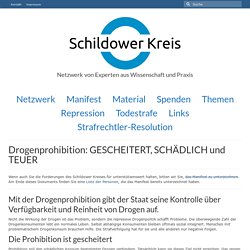
Am Ende dieses Dokuments finden Sie eine Liste der Personen, die das Manifest bereits unterzeichnet haben. Mit der Drogenprohibition gibt der Staat seine Kontrolle über Verfügbarkeit und Reinheit von Drogen auf. Nicht die Wirkung der Drogen ist das Problem, sondern die repressive Drogenpolitik schafft Probleme. Die überwiegende Zahl der Drogenkonsumenten lebt ein normales Leben. Selbst abhängige Konsumenten bleiben oftmals sozial integriert. New gangs run Colombians off their land - latimes. TUMACO, COLOMBIA — The Colombian government insists that paramilitary gangs are extinct.
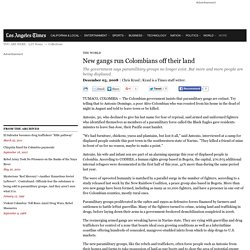
Try telling that to Antonio Domingo, a poor Afro-Colombian who was rousted from his home in the dead of night in August and told to leave town or be killed. Antonio, 30, who declined to give his last name for fear of reprisal, said armed and uniformed fighters who identified themselves as members of a paramilitary force called the Black Eagles gave residents minutes to leave San Jose, their Pacific coast hamlet. Narco_designations_kingpin.pdf. The Negative Impact of the War on Drugs on Public Health: The Hidden Hepatitis C Epidemic by Edu Santaela.
Resolution deutscher Strafrechtsprofessorinnen und –professoren an die Abgeordneten des Deutschen Bundestages. A.
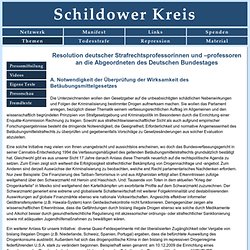
Notwendigkeit der Überprüfung der Wirksamkeit des Betäubungsmittelgesetzes Die Unterzeichnenden wollen den Gesetzgeber auf die unbeabsichtigten schädlichen Nebenwirkungen und Folgen der Kriminalisierung bestimmter Drogen aufmerksam machen. Sie wollen das Parlament anregen, bezüglich dieser Thematik seinem verfassungsrechtlichen Auftrag im Allgemeinen und den wissenschaftlich begründeten Prinzipien von Strafgesetzgebung und Kriminalpolitik im Besonderen durch die Einrichtung einer Enquête-Kommission Rechnung zu tragen.
Sowohl aus strafrechtswissenschaftlicher Sicht als auch aufgrund empirischer Forschungsergebnisse besteht die dringende Notwendigkeit, die Geeignetheit, Erforderlichkeit und normative Angemessenheit des Betäubungsmittelstrafrechts zu überprüfen und gegebenenfalls Vorschläge zu Gesetzesänderungen aus solcher Evaluation abzuleiten. B. Die strafrechtliche Drogenprohibition ist gescheitert, sozialschädlich und unökonomisch. 1. 2. 3. 4. 5. List of criminal enterprises, gangs and syndicates. This is a listing of organisations and groups involved in organized crime.
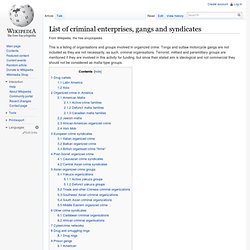
Tongs and outlaw motorcycle gangs are not included as they are not necessarily, as such, criminal organisations. Terrorist, militant and paramilitary groups are mentioned if they are involved in this activity for funding, but since their stated aim is ideological and not commercial they should not be considered as mafia-type groups. Drug cartels[edit] See also Allegations of CIA drug trafficking In several drug-producing or transit countries, drug traffickers have taken advantage of local corruption and lack of law enforcement to establish cartels turning in millions if not billions of dollars each year. Latin America[edit] See also Manuel Noriega's narcokleptocracy, Service d'Intelligence National and Yomagate.
Los Zetas. Los Zetas (pronounced: [los ˈsetas], Spanish for "The Zs") is a powerful and violent criminal syndicate in Mexico, and is considered by the U.S. government to be the "most technologically advanced, sophisticated, and dangerous cartel operating in Mexico.
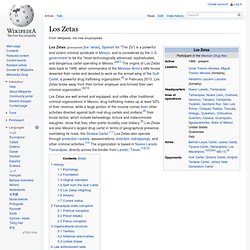
"[6][7] The origins of Los Zetas date back to 1999, when commandos of the Mexican Army's elite forces deserted their ranks and decided to work as the armed wing of the Gulf Cartel, a powerful drug trafficking organization.[8] In February 2010, Los Zetas broke away from their former employer and formed their own criminal organization.[9][10] History[edit] War on Drugs. On May 13, 2009, Gil Kerlikowske—the current Director of the Office of National Drug Control Policy (ONDCP)—signaled that the Obama administration did not plan to significantly alter drug enforcement policy, but also that the administration would not use the term "War on Drugs", because Kerlikowske considers the term to be "counter-productive".[11] ONDCP's view is that "drug addiction is a disease that can be successfully prevented and treated... making drugs more available will make it harder to keep our communities healthy and safe.
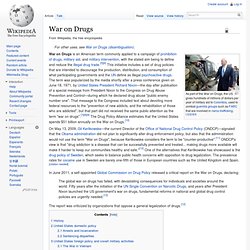
"[12] One of the alternatives that Kerlikowske has showcased is the drug policy of Sweden, which seeks to balance public health concerns with opposition to drug legalization. The prevalence rates for cocaine use in Sweden are barely one-fifth of those in European countries such as the United Kingdom and Spain. Kaibiles. 'War on drugs' has failed, say Latin American leaders. A historic meeting of Latin America's leaders, to be attended by Barack Obama, will hear serving heads of state admit that the war on drugs has been a failure and that alternatives to prohibition must now be found.
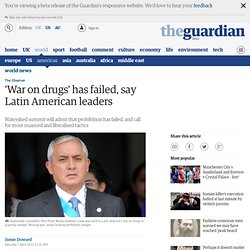
The Summit of the Americas, to be held in Cartagena, Colombia is being seen by foreign policy experts as a watershed moment in the redrafting of global drugs policy in favour of a more nuanced and liberalised approach. Otto Pérez Molina, the president of Guatemala, who as former head of his country's military intelligence service experienced the power of drug cartels at close hand, is pushing his fellow Latin American leaders to use the summit to endorse a new regional security plan that would see an end to prohibition.
In the Observer, Pérez Molina writes: "The prohibition paradigm that inspires mainstream global drug policy today is based on a false premise: that global drug markets can be eradicated. " Pérez Molina concedes that moving beyond prohibition is problematic.